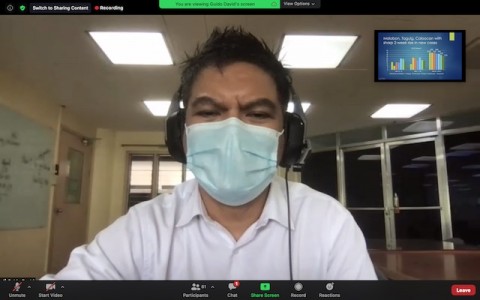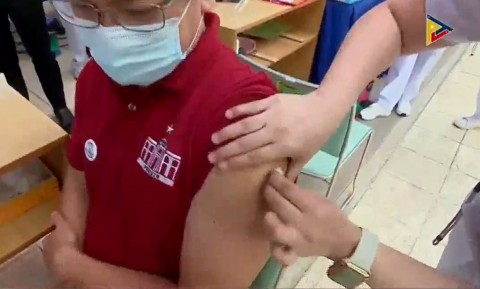by Emily Manuel
Contributor, Eagle News

(Eagle News) — In a virtual press conference held on March 3, 2021, the OCTA Research Team, an independent and inter-disciplinary Philippine-based research group, shared its latest report which highlights a sharp rise in the number of Covid-19 cases in some local government units (LGUs) in the National Capital Region (NCR), including: Pasay, Quezon City, Manila, Makati, Malabon, Taguig, Paranaque, and Navotas. This surge is possibly being driven by a new and more contagious variant.
– Likely increase in CoVid cases –
In its March 1 report, OCTA explained that unlike past surges, “the current surge has spread quickly, in a short period.” Although “this still needs to be confirmed by genome sequencing, the surge may be driven by a new and more contagious variant that could overwhelm the region if left unabated in the next few weeks.”
At the start of February 2021, the reproduction number in NCR was Rt = 1.0. By the end of February 2021, it rose to Rt = 1.5. The reproduction number gives the average number of secondary infections by each infected individual.
OCTA says, if this trend continues, the number of new Covid-19 cases per day in NCR will increase from its current average daily value of 770 to 2,200 by the end of March 2021. Additionally, the total number of NCR cases will increase to 280,000 from 234,754 cases and 920 new Covid-related deaths will be reported between now and the end of March.
Dr. Guido David of the University of the Philippines observed the sharpest two-week increase in the cities of Pasay and Makati.

– “Super-CoVid” variants –
Dr. Nicanor Austriaco, a Molecular Biologist from Providence College, USA and a Visiting Professor at the University of Sto. Tomas (UST), explained that variants, including the B.1.1.7 (UK) and the B.1.351 (South Africa) have triggered significant surges worldwide. “The ongoing surge in Pasay City and the NCR has the hallmarks of a variant-driven surge,” he says.
The UK variant, Dr. Austriaco explains, has a 50-70% higher infection rate, and is more transmissible in children, and among members of the same household.
The South Africa variant, on the other hand, “can resist the AstraZeneca vaccine” which only has a 10% efficacy rate against this particular variant. It is “no different than injecting water into a person,” he says.
Dr. Austriaco believes that “if we do not eliminate the South Africa variant in the Philippines, then the 17 million doses of AstraZeneca vaccine that we bought will be ineffective” and that “we would need three doses of the remaining vaccines” for this variant.

The Department of Health recently detected six cases of the South Africa variant in the country, three of which are in Pasay.
– Herd immunity –
Dr. Benjamin Co, Chief of the Section of Infectious Diseases and Department of Pediatrics in UST Hospital said that so far “none of the vaccines have demonstrated herd immunity.”
One reason for this is that vaccines are still in the early stages in clinical trials. Second, as vaccines have not yet been approved for children, achieving a herd immunity of 70% will not be possible if there is a large population of below 18 year-olds. Third, Co-vid has an animal reservoir, which makes achieving herd immunity more challenging. Finally, there is vaccine hesitancy.
– Window of opportunity –
Dr. Austriaco believes that if Pasay contains the spread, “we still have a window to eliminate the B.1.351 [South Africa variant] from circulation.” He adds that “if [Pasay] can eliminate the B.1.351, then we are safe. Otherwise we have to talk about other options.”
OCTA recommends that high-risk local government units (LGUs) should “intensify their efforts at testing, tracing, and isolation, to reverse the increase in transmission in their communities, and implement more aggressive and effective localized lockdowns with stricter border controls.”
They urge the national government, together with the LGUs, “to strictly monitor and enforce compliance with minimum health standards such as physical distancing, wearing of face mask and face shields and proper hygiene.”
They also encourage the private sector “to ensure strict implementation of minimum health standards in their establishments, provide safe workplaces, and adequate testing as needed.”

Finally, given the surge of new cases in the NCR, they encourage health workers in the region and the adjacent provinces “to get themselves vaccinated while the situation is still manageable.”







